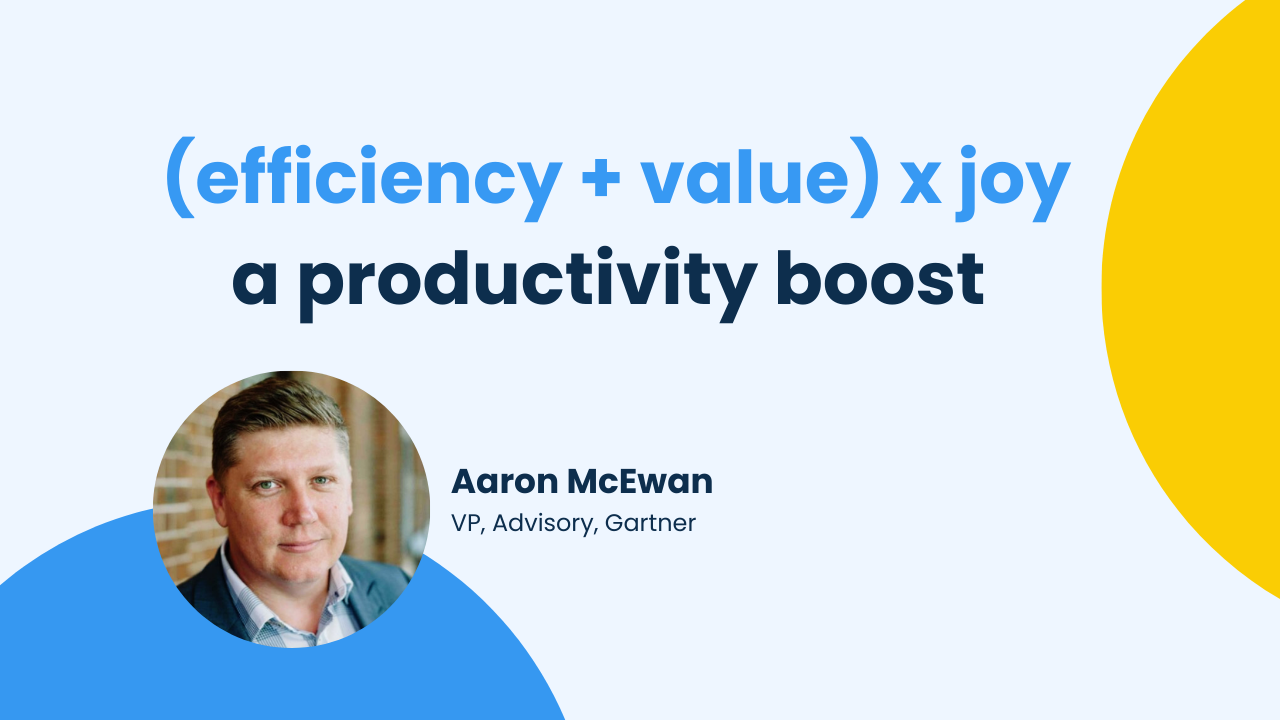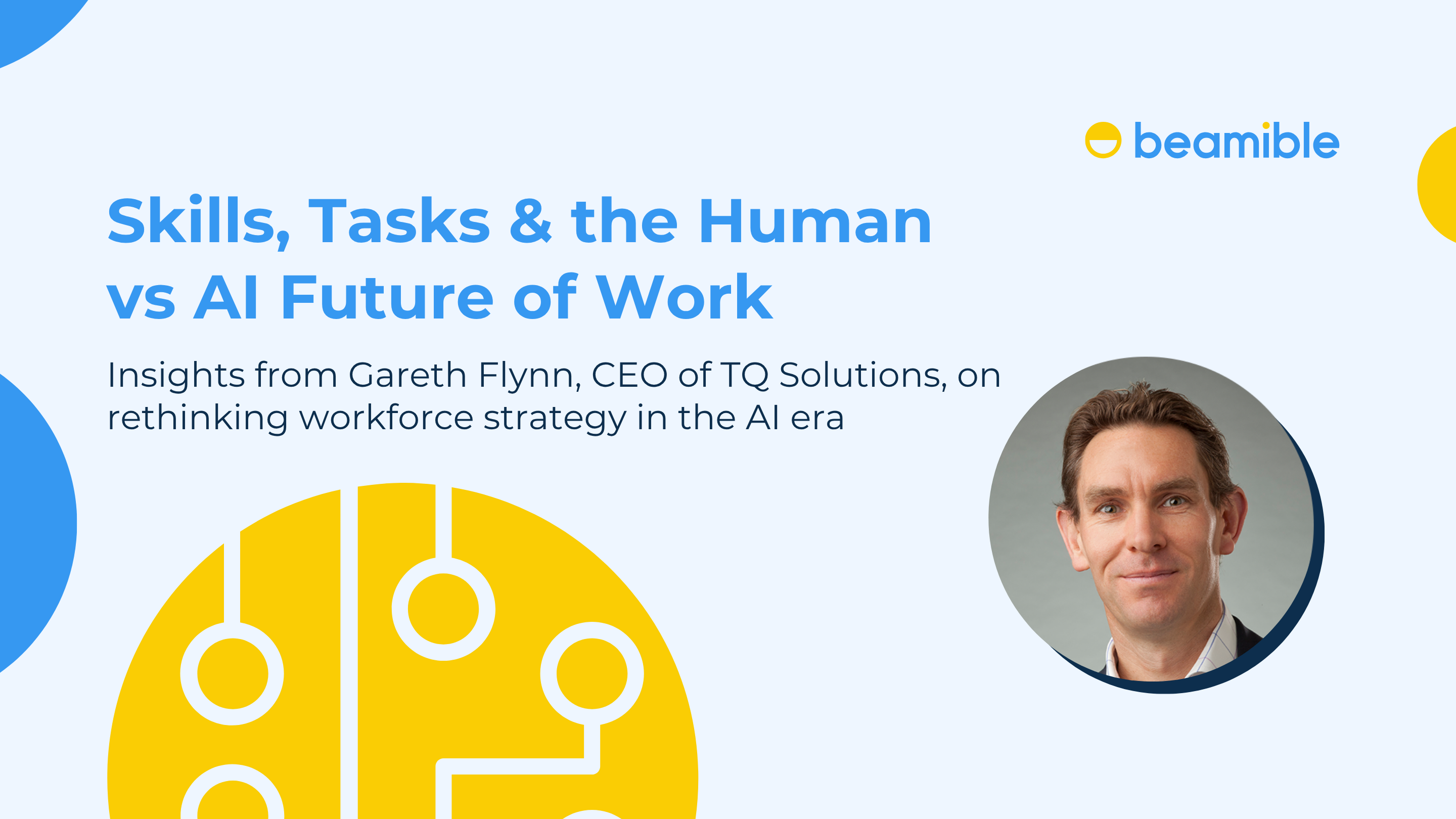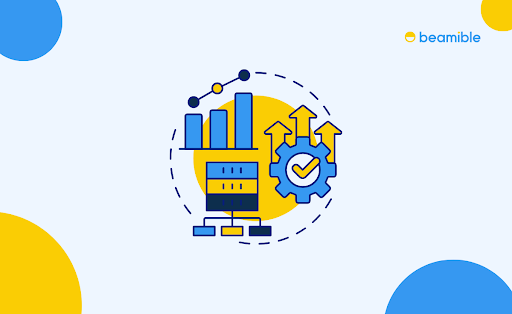How better work design can reduce psychosocial risk and unlock productivity across organisations
At Beamible, we’re passionate about helping organisations design better work. That’s why we partnered with renowned work design researcher Professor Sharon Parker and a group of leading employers to explore one of the most critical — and challenged — segments of the workforce: middle managers and frontline supervisors.
The study, which ran from Jan - June 2025, set out to diagnose and improve the role design of middle managers and frontline supervisors, with a focus on understanding the blockers to performance and engagement for middle managers, in order to reduce psychosocial hazards and improve organisational performance.
Why Focus on Managers?

The hypothesis was clear: managers are critical to team outcomes, but they are overloaded, under-supported, and operating with blurred role expectations. This leaves them ill-equipped to manage the human and strategic elements of their roles effectively — especially those interactions that are key to maintaining psychosocial safety.
The result?
- Increased stress and burnout for managers
- Escalation of people issues to HR and senior leaders
- A lack of proactive leadership where it’s needed most
Watch the full interview with Prof. Sharon Parker
Get her firsthand take on SMART work design and see our cohort’s key results in action.
The SMART Work Design Methodology

To explore this issue, the cohort applied Professor Sharon Parker’s SMART Work Design model, which highlights five evidence-based principles of effective work:
- Stimulating: Work should be energising and motivating
- Mastery: Workers should feel clear and confident in what’s expected of them
- Agency: Workers should have autonomy over how they get their work done
- Relational: People need connection and support in their work
- Tolerable Demands: Workload should be challenging but sustainable
Using this model, the cohort deployed Beamible’s platform to collect and analyse data from over 400 managers across four organisations, including both frontline supervisors and middle managers.
Key Findings

🔍 1. Managers Priorities are Misaligned
The good news? Managers enjoy much of their work and feel a strong connection to its purpose. But the work that energises them most — technical delivery and problem-solving — is not always the work that drives team or organisational performance.
- Managers spend 41% of their time on low-value work which does not directly impact their goals, such as admin, special projects or ad-hoc requests, staff approvals, troubleshooting people issues and internal team meetings.
- Only 28.4% of time is spent on people management, including providing technical guidance and support.
- 33% of time is devoted to technical and professional work (on the tools), even in roles meant to lead others
Perhaps most significantly, “there’s a 41% mismatch between what managers think is critical and what People and Culture leaders believe should be prioritised.”
⚠️ 2. Low Agency and Support tell a story of stressed managers, impacting organisational performance and Psychosocial risk.
Managers feel they lack control over or support in nearly half of their work. This is particularly true for emotionally demanding tasks like managing grievances or team conflict — exactly the kind of work that’s critical for positive psychosocial outcomes.
- 44% of time is spent in work where managers feel unsupported in their work
- 49% of time is spent in work where managers feel a low sense of agency or autonomy in how they complete their work
- Middle managers report lower levels of support and energy than frontline supervisors
🧭 3. Role Clarity and Strategic Focus Are Missing
Managers feel confident in their technical tasks but less so in areas like strategy, planning, and change leadership.
- Only 7.5% of time is spent on strategy and planning
- Middle managers see only 55% of their work as connected to goals, 10% less than frontline supervisors
- The research raised the debate about the priority of technical and professional work vs people management for technical populations. What is the right balance, prioritisation and expectations? Providing role clarity for managers is key.

Recommendations and solutions

The cohort with help from Dr Parker and Beamible CEOs, co-developed several targeted solutions to reimagine the role of the manager — with a focus on capability, clarity, and capacity:
✅ 1. Align on Clear Expectations
Align leaders and managers on what the highest value, top priority work is for these managers. Provide role clarity and reinforce the importance of people leadership as a key business capability. Use data deep dives to identify work activities which are misaligned at the business unit level.
✅ 2. Free Up Capacity
Implement better work design through task reallocation tools like Beamible to identify and remove low-value tasks. Provide a visual to leaders and managers to align on what the focus and tasks of a manger should be. This likely won’t be a new PD, just re-focusing a role from the drift caused by competing demands and initiatives. Free up time for strategy, technical coaching, and team enablement.
✅ 3. Consider Alternate Career Paths
Recognise and reward technical expertise — without pushing everyone into management. Offer clear career paths that don’t require people to lead teams if they don’t want to.
✅ 4. Upskill in Human Leadership
Targeted training and support for difficult conversations, relational leadership, and coaching can help managers shift from “doers” to enablers of team performance.
What’s Next?

This work highlights a fundamental truth: good work design is not a “nice to have” — it’s a business imperative.
If we want managers to create safe, productive, and high-performing teams, we need to design roles that allow them to do just that. That starts with clarity, capability, and capacity — all of which can be unlocked through structured, evidence-based work design.
Need to diagnose what’s happening for your managers? Ready to redesign manager roles in your organisation?
Talk to Beamible about how our tools and expert partners like Dr Sharon Parker can help you apply SMART Work Design in a scalable, measurable way.





